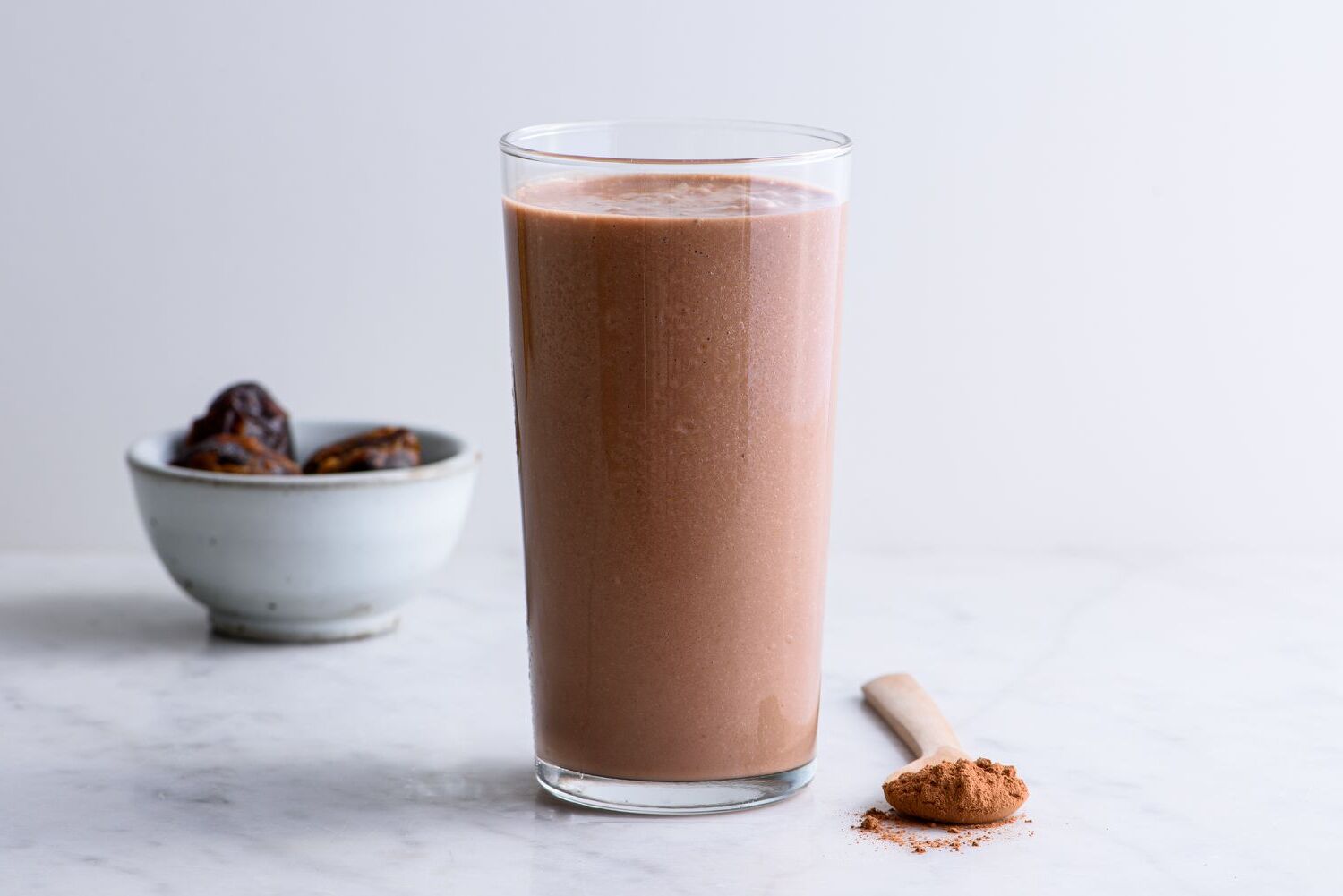
Are you curious about meal replacement shakes and their benefits? These convenient drinks have become a popular choice for those looking to manage weight, save time, or ensure balanced nutrition. Meal replacement shakes are designed to provide essential nutrients, vitamins, and minerals in a single serving, making them a practical option for busy lifestyles. Whether you're an athlete needing quick recovery fuel, a professional with a hectic schedule, or someone aiming to shed a few pounds, these shakes can be a game-changer. But what exactly makes them so effective? Let's dive into 40 fascinating facts about meal replacement shakes that will help you understand their impact on health and wellness.
Key Takeaways:
- Meal replacement shakes offer a convenient and balanced way to get essential nutrients, making them perfect for busy lifestyles and weight management.
- When choosing a meal replacement shake, consider your dietary needs, read reviews, and consult a nutritionist for the best fit. Remember, they're not a long-term whole food replacement.
What Are Meal Replacement Shakes?
Meal replacement shakes are convenient, nutrient-packed drinks designed to substitute a full meal. They come in various flavors and formulations, catering to different dietary needs and preferences. Here are some intriguing facts about these shakes.
-
Convenience: Meal replacement shakes are perfect for people with busy lifestyles. They offer a quick and easy way to get essential nutrients without cooking.
-
Balanced Nutrition: These shakes often contain a balanced mix of proteins, carbohydrates, fats, vitamins, and minerals, making them a well-rounded meal option.
-
Calorie Control: Many people use meal replacement shakes to manage their calorie intake, aiding in weight loss or maintenance.
-
Variety of Flavors: From chocolate to vanilla to exotic fruit blends, there's a flavor for everyone.
-
Dietary Options: There are meal replacement shakes for various dietary needs, including vegan, gluten-free, and keto-friendly options.
Health Benefits of Meal Replacement Shakes
Meal replacement shakes aren't just convenient; they also offer several health benefits. Let's explore some of these advantages.
-
Weight Management: These shakes can help control portion sizes and reduce overall calorie intake, aiding in weight loss.
-
Muscle Maintenance: High-protein shakes support muscle maintenance and growth, especially when combined with exercise.
-
Improved Digestion: Many shakes contain fiber, which aids in digestion and promotes gut health.
-
Blood Sugar Control: Some formulations are designed to have a low glycemic index, helping to stabilize blood sugar levels.
-
Nutrient Density: Meal replacement shakes are packed with essential vitamins and minerals, ensuring you get the nutrients you need.
Popular Ingredients in Meal Replacement Shakes
The ingredients in meal replacement shakes vary, but some are more common than others. Here are some popular components found in these shakes.
-
Protein Powders: Common sources include whey, soy, pea, and rice protein.
-
Fiber: Ingredients like psyllium husk, inulin, and oat fiber are often added for digestive health.
-
Healthy Fats: Sources like flaxseed oil, MCT oil, and avocado oil provide essential fatty acids.
-
Vitamins and Minerals: Many shakes are fortified with vitamins A, C, D, E, and B-complex, as well as minerals like calcium, magnesium, and zinc.
-
Natural Sweeteners: Stevia, monk fruit, and erythritol are often used to sweeten shakes without adding extra calories.
Potential Drawbacks of Meal Replacement Shakes
While meal replacement shakes offer many benefits, they also have some potential downsides. It's important to be aware of these before incorporating them into your diet.
-
Lack of Variety: Relying too much on shakes can lead to a monotonous diet, missing out on the variety of whole foods.
-
Artificial Ingredients: Some shakes contain artificial flavors, colors, and preservatives, which may not be ideal for everyone.
-
Digestive Issues: High fiber content or certain protein sources can cause bloating or digestive discomfort in some individuals.
-
Cost: Quality meal replacement shakes can be expensive, making them less accessible for some people.
-
Not a Long-term Solution: While convenient, they shouldn't replace whole foods entirely in the long run.
How to Choose the Right Meal Replacement Shake
Selecting the right meal replacement shake can be overwhelming with so many options available. Here are some tips to help you make an informed choice.
-
Check the Ingredients: Look for shakes with natural, whole-food ingredients and minimal artificial additives.
-
Consider Your Dietary Needs: Choose a shake that aligns with your dietary preferences, whether it's vegan, gluten-free, or keto.
-
Read Reviews: Customer reviews can provide insights into the taste, texture, and effectiveness of different shakes.
-
Consult a Nutritionist: A healthcare professional can help you choose a shake that meets your nutritional needs.
-
Try Samples: Many brands offer sample sizes, allowing you to try different flavors and formulations before committing to a full-size product.
Fun Facts About Meal Replacement Shakes
Meal replacement shakes have some interesting trivia associated with them. Here are a few fun facts to lighten up your knowledge.
-
Space Food: Astronauts have used meal replacement shakes as part of their diet in space missions.
-
Historical Roots: The concept of meal replacements dates back to the early 20th century, with products like malted milk.
-
Celebrity Endorsements: Many celebrities endorse meal replacement shakes as part of their fitness and wellness routines.
-
Fitness Community: These shakes are popular in the fitness community for their convenience and nutritional benefits.
-
DIY Shakes: You can make your own meal replacement shakes at home using ingredients like protein powder, fruits, and vegetables.
Meal Replacement Shakes and Fitness
Meal replacement shakes are often associated with fitness and bodybuilding. Here’s how they fit into an active lifestyle.
-
Post-Workout Recovery: High-protein shakes help repair and build muscles after a workout.
-
Pre-Workout Fuel: Consuming a shake before exercise can provide the energy needed for a good workout.
-
Hydration: Many shakes contain electrolytes, which help maintain hydration levels during intense physical activity.
-
Convenience for Athletes: Athletes often use meal replacement shakes for quick, on-the-go nutrition during training and competitions.
-
Balanced Macronutrients: These shakes offer a balanced mix of proteins, carbs, and fats, essential for overall fitness and performance.
Environmental Impact of Meal Replacement Shakes
The production and consumption of meal replacement shakes also have environmental implications. Here are some facts related to their environmental impact.
-
Reduced Food Waste: Meal replacement shakes can help reduce food waste by providing precise portions.
-
Sustainable Ingredients: Some brands use sustainably sourced ingredients, reducing their environmental footprint.
-
Packaging: Many companies are moving towards eco-friendly packaging to minimize plastic waste.
-
Carbon Footprint: Producing plant-based protein shakes generally has a lower carbon footprint compared to animal-based products.
-
Supporting Local Farmers: Some brands source ingredients from local farmers, supporting sustainable agriculture practices.
Final Thoughts on Meal Replacements
Meal replacements offer a convenient way to manage nutrition, especially for those with busy lifestyles. They provide essential vitamins, minerals, and macronutrients, making them a viable option for quick, balanced meals. However, relying solely on them isn't ideal. Whole foods bring diverse nutrients and benefits that meal replacements can't fully replicate.
It's crucial to choose high-quality products, checking labels for added sugars and artificial ingredients. Consulting a healthcare professional can help tailor meal replacements to individual needs. Remember, balance is key. Incorporating meal replacements into a varied diet can support health goals without sacrificing the joy of eating.
Ultimately, meal replacements can be a helpful tool in your nutritional arsenal, but they shouldn't replace the rich variety of whole foods that contribute to overall well-being. Use them wisely, and enjoy the best of both worlds.
Frequently Asked Questions
Was this page helpful?
Our commitment to delivering trustworthy and engaging content is at the heart of what we do. Each fact on our site is contributed by real users like you, bringing a wealth of diverse insights and information. To ensure the highest standards of accuracy and reliability, our dedicated editors meticulously review each submission. This process guarantees that the facts we share are not only fascinating but also credible. Trust in our commitment to quality and authenticity as you explore and learn with us.


